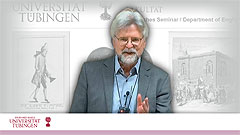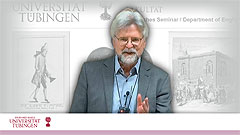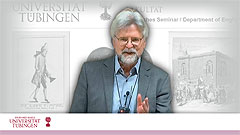Vorlesung Satire - Sentiment - Sensation: English Literature in the Eighteenth Century, 5. und 6. Stunde
Bauer, Matthias
(2025)
| mla clipboard |
Bauer M. "Vorlesung Satire - Sentiment - Sensation: English Literature in the Eighteenth Century, 5. und 6. Stunde.", timms video, Universität Tübingen (2025): https://timms.uni-tuebingen.de:443/tp/UT_20251028_001_ws2526englit18th_0001. Accessed 11 Nov 2025. |
| apa clipboard |
Bauer, M. (2025). Vorlesung Satire - Sentiment - Sensation: English Literature in the Eighteenth Century, 5. und 6. Stunde. timms video: Universität Tübingen. Retrieved November 11, 2025 from the World Wide Web https://timms.uni-tuebingen.de:443/tp/UT_20251028_001_ws2526englit18th_0001 |
| harvard clipboard |
Bauer, M. (2025). Vorlesung Satire - Sentiment - Sensation: English Literature in the Eighteenth Century, 5. und 6. Stunde [Online video]. 28 October. Available at: https://timms.uni-tuebingen.de:443/tp/UT_20251028_001_ws2526englit18th_0001 (Accessed: 11 November 2025). |
| file download | bibtex endnote |
Information
current

01:29:48
Vorlesung Satire - Sentiment - Sensation: English Literature in the Eighteenth Century, 5. und 6. Stunde
(2025-10-28)
related
Vorlesung Satire - Sentiment - Sensation: English Literature in the Eighteenth Century, 3. und 4. Stunde
(2025-10-21)


